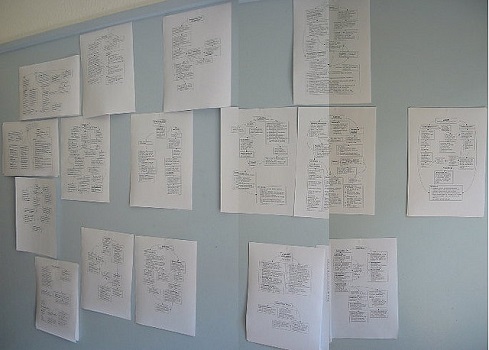 Type A Revision – with A.J. Verdelle – How to Revise Your Writing
Type A Revision – with A.J. Verdelle – How to Revise Your Writing
Write → Review → Tighten → Clarify → Reorder → Seek nuance → Move the story forward →
How do you know when your story is finished?
Finished: When you’ve said all you have to say.
Finished: When there’s a clear beginning, middle, and end.
Remember: “You don’t get the book you wanted, you get the book you get.” – James Baldwin
Sometimes a revision is simply an addition. If your addition doesn’t add tension, drama, or explain something, then maybe you don’t need it. Whatever you keep, make sure it serves the narrative.
Eliminiate excess! “The good shit wants to play with the good shit!” – Thomas Sayers Ellis. (Get rid of anything that isn’t “Good Shit.”)
Clarity is non-negotiable – Don’t make readers have to guess, don’t confuse them.
Get rid of redundancy: “The sun rose this morning.” Great. But the sun rises every morning, everyone knows that. The sun doesn’t rise at night. Revision would be “The sun rose.” (This is, of course, unless you’re writing some dystopian story where the sun doesn’t usually rise, etc.)
Revise only when the work is finished, when there’s closure. Don’t revise when you’re still working on it; don’t revise an unfinished piece of work. You need to be finished before you revise because you need to know where you want to end up before you figure out how to get there.
- Rise above your work.
- Circle the verbs (if they’re not necessary, then kill them!)
- We want action and drama in our stories!
- Action and reaction go together.
Think about killing your verbs: “Dan came into the room, clumsily.” VS “Dan came into the room late, like always.” Ask yourself if the verb is actually serving the story. Focus on accuracy. “The building appears…” A building doesn’t just “appear.”
When revising ask yourself: Why did I write this work?
(What did I intend to write? VS What did I actually write?)
*Look at places where you can get rid of the word “it” (more often than you think).*
*You need to be able to say what you’re writing about in 18 words or less.*
*Look at any word longer than 8 letters and make sure it’s doing it’s job.*
*These notes were from one of my favorite professor at Lesley University: A.J. Verdelle.*
Click here to see more MFA Notes…
Recommended book for this section: The Good Negress: A Novel, by A.J. Verdelle.
Picture: Flickr/Katie Sadler
About these MFA Notes: Revising your creative writing
—
Recently, I graduated from Lesley University with an MFA in creative writing, and I decided that I wanted to share what I learned in a series of blog posts.
I decided to share for two reasons:
1) My notes, although not too detailed, could possibly help other writers.
2) Rewriting my notes forces me to re-read and re-think everything I learned, so it’s a win-win.
But before we dive in, please keep two things in mind:
1) These notes are neither complete nor perfect. The classes at Lesley were not typical lecture/note classes; the classes were filled with writing and thinking exercises and often this left no time for notes (in a good way). However, even with that, these sparse notes, I do believe, could still offer value.
2) I may, from time to time, include actual writing prompts from the classes, please bare with me, they’re first drafts and were done in the moment.
I hope you enjoy this series of notes and if you have any questions about the notes, Lesley University, or MFA’s, please feel free to contact me.
—